Cosmetic dentistry, a field that marries the art of aesthetics with the science of dental care, has significantly expanded the…
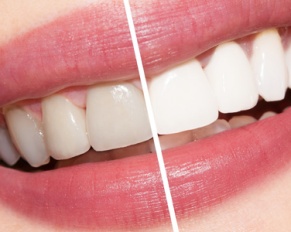

Cosmetic dentistry, a field that marries the art of aesthetics with the science of dental care, has significantly expanded the…
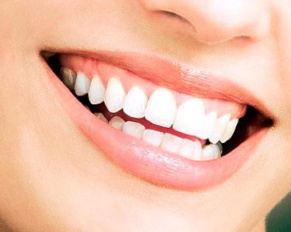
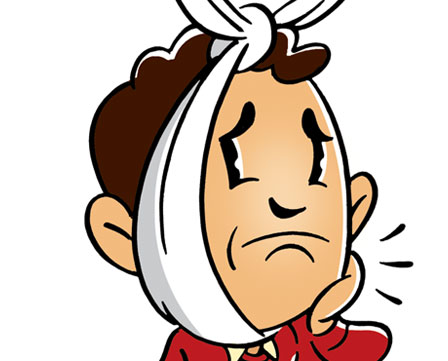 “This toothache is killing me!” Okay, this might be an exaggeration, but if you have a toothache now, or have ever had one in the past, you probably don’t think so. Anyone who has never had a toothache cannot possibly know the pain, not to mention the disruption it can cause in your life. You have trouble eating because you can only eat on one side of your mouth, and you often can’t stand any food that’s too cold or too hot. (And how many of the foods you love does this eliminate? In those cold Essex County winters, you can’t drink anything hot, and in those warm Jersey summers, you can’t eat anything cold!) You have trouble sleeping because the pain keeps you awake unless you reach, yet again, for pain killers. Yes, a toothache only seems like it’s not a big deal to a person who’s not suffering from one. So what caused your toothache?
“This toothache is killing me!” Okay, this might be an exaggeration, but if you have a toothache now, or have ever had one in the past, you probably don’t think so. Anyone who has never had a toothache cannot possibly know the pain, not to mention the disruption it can cause in your life. You have trouble eating because you can only eat on one side of your mouth, and you often can’t stand any food that’s too cold or too hot. (And how many of the foods you love does this eliminate? In those cold Essex County winters, you can’t drink anything hot, and in those warm Jersey summers, you can’t eat anything cold!) You have trouble sleeping because the pain keeps you awake unless you reach, yet again, for pain killers. Yes, a toothache only seems like it’s not a big deal to a person who’s not suffering from one. So what caused your toothache?

The causes of a toothache are many. Thankfully, the preventions are many more. For most people, preventing a toothache is often as easy as eating the right kinds of foods and setting aside just a few minutes each day to concentrate on good oral care. Staving off a toothache naturally can be the simplest and most cost effective way to living a life free of tooth and mouth problems. Top dentists in Essex County offer the following five natural ways to prevent a toothache in order to remain tooth-pain-free.
You already know it, but it bears repeating: preventing a toothache starts by preventing tooth problems in the first place. Unless you’re battling a situation that makes toothache prevention difficult such as dry mouth caused by medications or a medical condition, in most cases, bad oral hygiene is the root cause of toothaches. So wait … then doesn’t that mean that good oral hygiene is the root cause of prevention? Absolutely!
 No one is immune to getting a toothache. Though many ailments in life tend to fall on older people, to be candid (and obvious), anyone who has teeth can get toothaches. The causes of toothache in young adults typically involve what they eat and how they care for their teeth. Unfortunately, young people often don’t eat the type of diet that enables optimum oral care. Foods that contain refined sugars and starches are among the worst culprits for poor diet among young adults. Even juices that are considered healthy can lead to toothaches. Another miscreant that causes toothaches in young adults is dental hygiene, particularly if they find themselves too busy to stop for a good brushing or flossing. Finally, not visiting a dentist on a regular basis is a big cause for toothaches in young people who often don’t have the means or insurance to see a professional. Family dentists in South Orange have compiled information about the causes of toothaches in young adults, as well as remedies. For more information about ways to reduce the risk of toothache contact a top dentist near you today.
No one is immune to getting a toothache. Though many ailments in life tend to fall on older people, to be candid (and obvious), anyone who has teeth can get toothaches. The causes of toothache in young adults typically involve what they eat and how they care for their teeth. Unfortunately, young people often don’t eat the type of diet that enables optimum oral care. Foods that contain refined sugars and starches are among the worst culprits for poor diet among young adults. Even juices that are considered healthy can lead to toothaches. Another miscreant that causes toothaches in young adults is dental hygiene, particularly if they find themselves too busy to stop for a good brushing or flossing. Finally, not visiting a dentist on a regular basis is a big cause for toothaches in young people who often don’t have the means or insurance to see a professional. Family dentists in South Orange have compiled information about the causes of toothaches in young adults, as well as remedies. For more information about ways to reduce the risk of toothache contact a top dentist near you today.
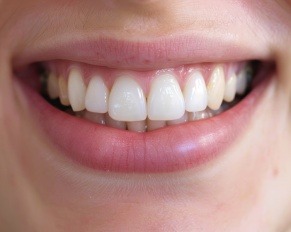
The life of a teenager should be about school, a supportive home life, parties, and first crushes. It should be filled with happiness on the inside that leads to smiles on the outside. It shouldn’t be about teeth problems. That’s why cosmetic dentistry for teens is a topic that’s trending higher than ever. More teens are having cosmetic dentistry procedures performed than in recent years, and they’re having these procedures done for a number of reasons. First, dental health is vital to overall health. A teen’s physical, mental, and emotional health depend on the health of their teeth more than you can possibly imagine. Did you know that poor dental health has been shown to have a direct effect on heart health? It’s true. In fact, oral hygiene and health can lead to a number of health problems, including but not limited to heart disease, diabetes, and digestive diseases. But that’s not all. Problems with their teeth, such as misaligned teeth, overbite, or loss of a tooth due to a sports injury, can have a negative impact on a teen’s emotional and psychological health, as their mirror images are an important role in their social lives. Cosmetic dentists in New Jersey and throughout the country see the effects poor dental health can have on teens everyday, and that’s why they’ve compiled the following dental health tips for teens.
 Summer’s here and the time may be right for ‘dancing in the streets,’ but it’s not right for skipping your dental routine. And it’s surely never the right time for experiencing problems with your teeth that will bring your summer fun to a screeching halt. Did you know that more people experience teeth problems in summer than any other time of the year? It’s true! In fact, summer is tops for dental health problems even if you factor in all the sweets folks eat at Halloween and through the Christmas holidays! Why, you ask? Simple. Because summer’s high activity levels—loaded with fun in the sun, parties, and vacations—often have folks like yourself too busy having a good time to stop and think about the foods they’re eating or their oral hygiene routines. That’s why cosmetic dentists in Clearwater have put together this valuable list of dental health tips for summer that will help you keep your teeth just as healthy in summer as in any other season of the year.
Summer’s here and the time may be right for ‘dancing in the streets,’ but it’s not right for skipping your dental routine. And it’s surely never the right time for experiencing problems with your teeth that will bring your summer fun to a screeching halt. Did you know that more people experience teeth problems in summer than any other time of the year? It’s true! In fact, summer is tops for dental health problems even if you factor in all the sweets folks eat at Halloween and through the Christmas holidays! Why, you ask? Simple. Because summer’s high activity levels—loaded with fun in the sun, parties, and vacations—often have folks like yourself too busy having a good time to stop and think about the foods they’re eating or their oral hygiene routines. That’s why cosmetic dentists in Clearwater have put together this valuable list of dental health tips for summer that will help you keep your teeth just as healthy in summer as in any other season of the year.
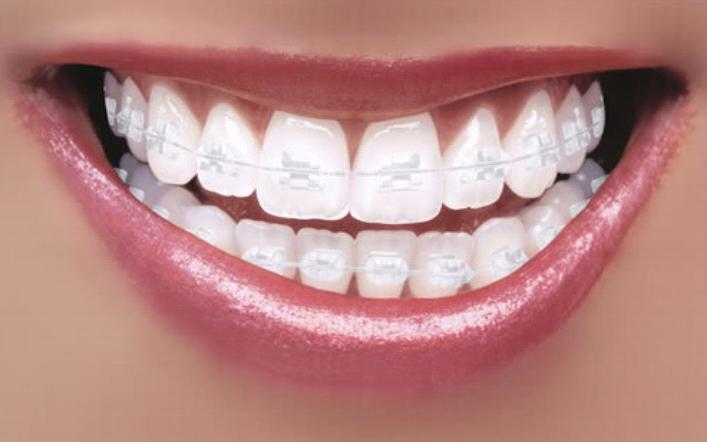 Chances are slim to none that your teeth are 100% perfect. If you made it through the childhood years and sports activities and managed not to chip, otherwise damage or lose a tooth or two along the way, please consider yourself lucky. The teeth you offered the Tooth Fairy in exchange for loose change do not count – we are talking about your permanent teeth.
Chances are slim to none that your teeth are 100% perfect. If you made it through the childhood years and sports activities and managed not to chip, otherwise damage or lose a tooth or two along the way, please consider yourself lucky. The teeth you offered the Tooth Fairy in exchange for loose change do not count – we are talking about your permanent teeth.
Regular visits to the dentist help to maintain good dental hygiene and regular check-ups by the dentist and visits to your dental hygienist will keep your teeth healthy and strong and plaque free. You might have been lucky enough to have a stellar smile without the need of braces, but, did you know that once your pesky wisdom teeth decide to put in an appearance, that their emergence can wreak havoc with that beautiful smile? Well more about wisdom teeth later.
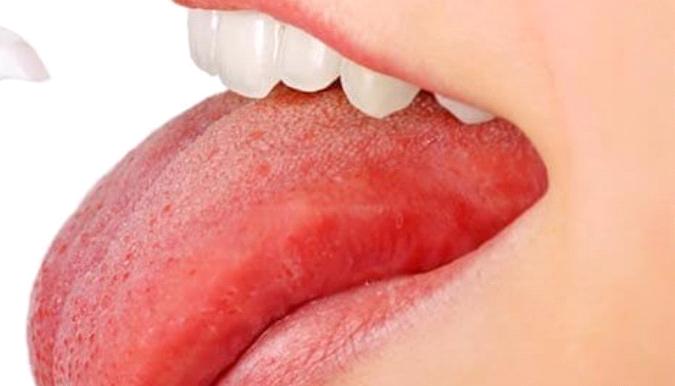
If you see a dentist or dental hygienist on a routine basis, they no doubt give you an oral cancer check. This is commonplace now since over 40,000 Americans are diagnosed with oral and throat cancers yearly. Sadly, the five-year survival rate of those diagnosed is only slightly more than 64 percent. By being proactive, you and your dentist can detect cancer and treat it so that major health problems are alleviated later. So thank your dentist next time when the oral cancer test is complete as he or she might just save your life!
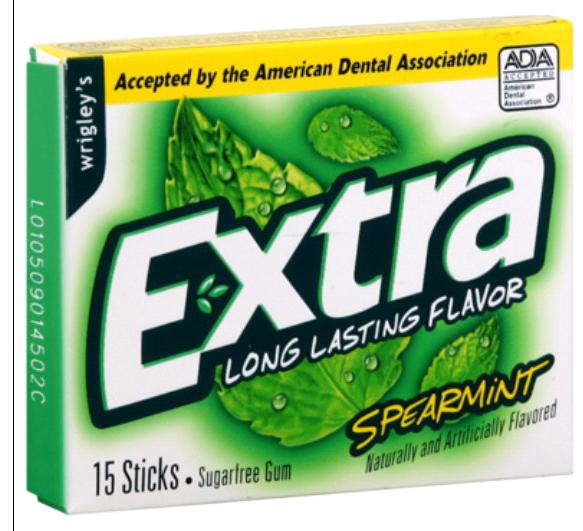 Halloween can be pretty scary, and not just for its ghosts, witches, and goblins. Halloween has been known to frighten more than just a few parents for what all that gooey, sugary candy can do to their kids’ teeth. Thankfully, as a parent, you don’t have to make your kids opt out of all the Halloween fun just because you don’t want their teeth to end up looking like that candy corn they’ve been scarfing by the boatload. In fact, it likely will surprise you to learn that some of the candy they get for for trick or treat may even be good for their teeth. For instance, sugarless candies can actually benefit teeth. But what about the rest of them? Is one sugary candy just as bad as another? Or are all Halloween candies that contain sugar as ghastly as those costumes they picked out? Here are some dental health tips for parents at Halloween about the best and worst Halloween candy for teeth.
Halloween can be pretty scary, and not just for its ghosts, witches, and goblins. Halloween has been known to frighten more than just a few parents for what all that gooey, sugary candy can do to their kids’ teeth. Thankfully, as a parent, you don’t have to make your kids opt out of all the Halloween fun just because you don’t want their teeth to end up looking like that candy corn they’ve been scarfing by the boatload. In fact, it likely will surprise you to learn that some of the candy they get for for trick or treat may even be good for their teeth. For instance, sugarless candies can actually benefit teeth. But what about the rest of them? Is one sugary candy just as bad as another? Or are all Halloween candies that contain sugar as ghastly as those costumes they picked out? Here are some dental health tips for parents at Halloween about the best and worst Halloween candy for teeth.
 Impossible, right? Actually, it’s very possible. As a parent, you probably cringe every year about this time thinking about all that candy your kids are going to get on their fun night of trick-or-treating. And all that sugar swishing around in their mouths, well, it’s on a mission to destroy your kid’s teeth and tooth structures. But it doesn’t have to be that way. There are things you can do as a parent to help your kids get through Halloween and all its sugary ghoulishness without coming out on the other end with a mouth full of cavities.
Impossible, right? Actually, it’s very possible. As a parent, you probably cringe every year about this time thinking about all that candy your kids are going to get on their fun night of trick-or-treating. And all that sugar swishing around in their mouths, well, it’s on a mission to destroy your kid’s teeth and tooth structures. But it doesn’t have to be that way. There are things you can do as a parent to help your kids get through Halloween and all its sugary ghoulishness without coming out on the other end with a mouth full of cavities.